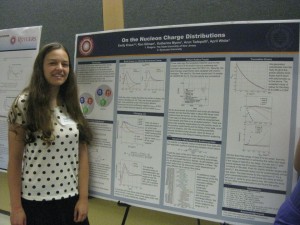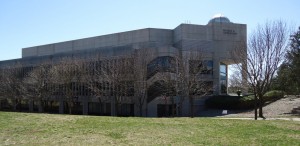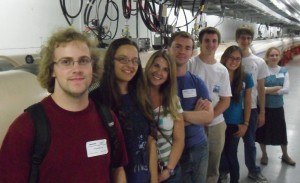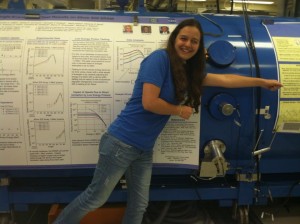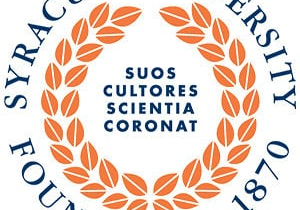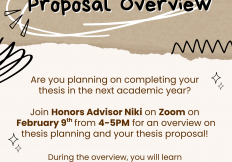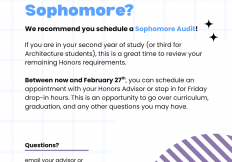
….so you’re probably starting to dream about next next summer! Summer is an excellent time for research, study abroad, or internships and applications deadlines are approaching.
Here’s a new cross-post from the Center for Fellowship and Scholarship Advising (CFSA) blog. We’ve been featuring SU student winners of nationally competitive awards and asking them 6 questions about their experiences. In this edition, Honors student Emily Kraus describes her summer research experience through the National Science Foundation Research Experience for Undergraduates Program (NSF REU).
Are you planning for next summer or working on applications? CFSA is here to help! Check out this link to a list of summer opportunities: http://nationalscholarships.syr.edu/?page_id=3718
No matter where you are in the process, come by our drop-in advising sessions especially to talk about summer plans or applications:
Summer Starts Here
Jan. 16th 3:00 – 4:30 PM
Jan. 22nd 11:00 AM – 1:00 PM
Bird Library, Room 123
Bring drafts for comments, or just bring your notebook or laptop to get started. It’ll be a great way to continue or jump start your application process. We’ll have advisors on hand to answer questions, provide feedback on essay drafts, or talk about where to start.
1) Why was this program a good fit for your academic interests?
My name is Emily Kraus and I am a junior physics major here at SU. During the summer of 2013 I participated in an NSF-funded research experience for undergraduates (REU) at Rutgers University. This was a good fit for my academic interests because research is a very important component of becoming a physicist, which is my career goal.
2) Tell us about your research there – what did your daily schedule look like?
My project was in nuclear physics. I carried out computational analysis about the structure of protons and neutrons. A typical day for me involved writing and debugging computer code to calculate the charge distribution and charge radii for these two particles and interpreting the results. I would often get lunch with my advisor and his graduate students. After work I hung out with all of the new friends I made who were also doing research in physics or other areas of science.
3) Who was a particularly interesting person that you met?
A particularly interesting person that I met was Noemie Koller, an 80-year-old woman nuclear physicist who still does research at Rutgers. Affectionately known as the grandmother of the physics department there, she told me many interesting stories over lunch one day about the trials of being a female graduate student in the 1950’s and working for the famous physicist Madame Wu.
4) You’re in a lab at SU. Why was it helpful to have a research experience at another university?
Here at SU I work for the experimental high energy physics laboratory. It was helpful to get research experience at another university because it enabled me to explore a different subfield, a different way of doing research, and different people. This is something everyone should do in their undergraduate years not only to zero in on what subfield they ultimately want to end up in, but also to expand their breadth of knowledge in their field.
5) What did you do for fun during the program?
During my free time after work and on weekends there was a lot to do for fun. We often explored the greater New Brunswick area around Rutgers. Some weekends we went hiking or to the beach. The REU also planned several educational field trips to Hayden Planetarium, IBM T.J. Watson Research Center, and Brookhaven National Laboratory.
- 6) Any advice for SU students applying to NSF REU programs?
I’d say the best advice I can give to anyone applying to REU’s is to apply to at least eight programs and be honest in your application! Even if you haven’t had any research experience, that’s okay. Everyone has to start somewhere and often many universities are actually looking for students who are less experienced; so that they can give them that initial taste of research.
Pretending to be a particle in an accelerator at IBM T.J. Watson Research Center
